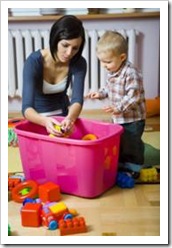I hate the word “chores”. I do not really know why. I have this resistance to the word more than the concept. I believe there are (sadly) many parents like me with a negative attitude towards this word. You see, besides easing the load on the parents (which certainly helps), chores are a great way for parents to educate their kids and teach them some excellent life skills.
When I talk to parents and kids about chores, they see chores as punishment, a heavy responsibility or a way to earn your right to be a member of the family. In fact, the skills learned while doing chores are very important and their effect on our kids lasts long after they leave their parents’ home.
I propose we stop calling them “chores” and call them “life skills assignments” instead. Why?
Giving kids life skills assignments helps them develop many valuable life skills. When we send them to school to learn Math and English, we forget that the skills they will need in their life as adults (which is a bigger portion of life) are not just cognitive skills of reading and calculating, but other skills, as described below.
Relationship skills
 When they grow up, your kids will need to have good relationships with their partners, bosses, colleagues, neighbors and their own kids. Giving kids assignments at home is a great lesson in relationships.
When they grow up, your kids will need to have good relationships with their partners, bosses, colleagues, neighbors and their own kids. Giving kids assignments at home is a great lesson in relationships.
One of the best feeling kids can have is that you trust them. By giving them life skills assignments and praising them for their success, you say “I believe in you” and this is a great thought for kids to carry to their adulthood.
Another aspect of relationships learned through the tasks is being considerate and helpful. Kids get the feeling they are part of a group and a sense of belonging. They learn that if they help others, they can always get help in return when they need it, because everyone cares for one another.
Contribution is also an emotional need and shows a high level of emotional intelligence. When kids give, they receive a great sense of achievement and making a difference. When they become teenagers, their need to feel part of a group is so high they will do a lot of (silly) things to be accepted and included. If their sense of belonging to the family is high, they will be less likely to sacrifice everything just to be included in their social group. Is this not valuable? I think it is.
Self esteem
As I have written many times in this blog, self-esteem is built by accumulating success experiences. For a 4-year-old, getting a chair and climbing the counter to get the jam is a great success. If you also say great things about his or her persistence and creativity, the success experience grows bigger. Life is full of things to do and kids who complete and succeed at doing many of them develop a strong sense of accomplishment. Giving them life skills assignments develops their belief that they can! Trust me, as they grow older, this belief alone can determine their success in life.
Responsibility
 Throughout their life, your kids will have to accept responsibility for many things. They will have to be responsible partners, parents, workers and citizens and must be able to take care of themselves, complete their tasks and overcome obstacles.
Throughout their life, your kids will have to accept responsibility for many things. They will have to be responsible partners, parents, workers and citizens and must be able to take care of themselves, complete their tasks and overcome obstacles.
Making kids responsible for tasks at home is a great lesson in responsibility. At first, they take little bits of that “huge” responsibility and later, they can do it all on their own. The younger they are, the more room they have for making mistakes and learning from them. Responsibility is a key character trait of successful people and it is much more important than reading and achieving in Math.
Time management skills
Although we all have 24 hours every day, some of us use it better than others. From their first day of school until they are old, your kids will have to manage their time. Homework, projects and assignments given at school contribute to the development of time management skills, but household jobs are more relevant for life. Think of yourself running around, trying to do all everything in the house. If you give your kids the skills to manage things better than you do, their life will be easier than yours is.
Giving kids assignments like cleaning the shower or the toilet within a set time will teach them to plan and develop their prioritizing skills. Helping them plan a daily or weekly routine that includes these activities will guarantee they will consider them as part of life and will not try to avoid them as much as they can (like most adults who hate cleaning the house).
Independence
 Again, when most kids leave the house, they need to take care of themselves. When my mom gave us chores and we complained (yuck, I still hate it!), she said, “What will you do when you live on your own?” (I remember saying, “I’ll buy readymade food”). Whether we like it or not, our kids will have to cook, clean their house, take care of their finances and the list is huge. No, I do not think we have to make sure they do it perfectly from the age of 4. However, I do believe we help them realize these things are part of life that never disappear, no matter what they do, but they can learn to do them effectively. As they master various skills, this will give them the confidence they will be fine wherever they go.
Again, when most kids leave the house, they need to take care of themselves. When my mom gave us chores and we complained (yuck, I still hate it!), she said, “What will you do when you live on your own?” (I remember saying, “I’ll buy readymade food”). Whether we like it or not, our kids will have to cook, clean their house, take care of their finances and the list is huge. No, I do not think we have to make sure they do it perfectly from the age of 4. However, I do believe we help them realize these things are part of life that never disappear, no matter what they do, but they can learn to do them effectively. As they master various skills, this will give them the confidence they will be fine wherever they go.
My daughter was 12 when we lived in Singapore and when I got stuck at work, I could call her to say I was not going to be home on time to cook dinner and know she would take care of it all by herself. I never ask her, “What will you do when you live on your own?” because I know she will be perfectly fine after this experience.
How to give life skills assignments to your kids
- Life skills assignments can start as early as 2 years old. Picking up the toys, returning books after reading time and putting your clothes in the laundry basket are easy things even for a toddler.
- When you give a task for the first time, try to be around to guide your kids. Some kids will do anything, as long as they are not alone. Help them do the task at first and slowly let them do more of it. I physically move one meter away and then two meters away from them to help my kids’ progress towards full independence. Mostly, I stick around and do something else next to them.
- Having a job schedule is a great idea, especially when you have more than one kid. It is much better than nagging. When your kids are too young to read, use picture stickers.
- Try to find a set time for each task. For example, for a long time, we did not have a dishwasher and there were fewer dishes to wash on Saturdays and Sundays, so we got our kids to wash the dishes on weekends. Our youngest daughter Noff started washing dishes when she was 6. Now that we use the dishwasher, she clears it or washes the fruit we bring from the market. Having a set time makes life much easier for everyone.
 Always show your appreciation for every task and note how skilful your kids have become. Tell them you know you trust them to be able to take care of themselves when the time comes. My daughter is 20 years old now and every day, I get a chance to tell her that looking at her room makes me happy to know she will have a clean and organized home of her own. Watching her taking care of her finances so well makes me happy and confident she will manage her finances well when she lives on her own (which she absolutely dreads).
Always show your appreciation for every task and note how skilful your kids have become. Tell them you know you trust them to be able to take care of themselves when the time comes. My daughter is 20 years old now and every day, I get a chance to tell her that looking at her room makes me happy to know she will have a clean and organized home of her own. Watching her taking care of her finances so well makes me happy and confident she will manage her finances well when she lives on her own (which she absolutely dreads).- Cleaning, cooking and other household jobs can be good opportunities for family bonding. Put some music on, sing together, tell jokes and tell stories about your day or about your childhood. It will get your kids associate routine maintenance with quality time.
- Give extra attention to tasks done without your reminder. If you are using the points system (allowance, stickers, tokens), make sure to give extra credit to anything done without you asking or reminding.
- For easily distracted kids, try making the tasks into a game. We fold the laundry together and to make it fun, I say “Let’s see how quickly we can fold everything” or I ask my 7-year-old to bring the coat hangers from all closets and say, “Let’s see how many of them you can find”. Sometimes, when we need to wash the floor, I suggest the kids wash the floor like Pippi Longstocking by skating on brushes or scrubbers – it works!
- Do not fall in the trap of “but none of my friends…” My first urge is to say, “You can go live at your friend’s house”, but I hold myself and explain to my kids that every household has different rules and in every group they are part of, they need to learn to work with those rules. Also, explain that the other kids who do not help at home miss feeling a sense of belonging.
- Life skill tasks are kind of a contract between parents and kids. When your kids do not follow the agreement, do not punish them with extra tasks. Instead, say, “You can watch TV only after you finish your task” or ” you can play the computer only after you do your task”
When to start?
 Kids can start learning useful life skills as early as 2 years old. Researcher Marty Rossman at the University of Minnesota examined the relationship between household chores starting age and success as an adult. She found out that regardless of IQ, people who too part in household chores at the age of 3 or 4 were more likely to complete their education, get a job, develop adult relationships and avoid the use of drugs. Unfortunately, the research also found that kids who did not take part in household chores until they were teens were more likely to stop their education, be without a job, have dysfunctional relationships and use drugs. It is as simple as that! Give your kids home tasks early!
Kids can start learning useful life skills as early as 2 years old. Researcher Marty Rossman at the University of Minnesota examined the relationship between household chores starting age and success as an adult. She found out that regardless of IQ, people who too part in household chores at the age of 3 or 4 were more likely to complete their education, get a job, develop adult relationships and avoid the use of drugs. Unfortunately, the research also found that kids who did not take part in household chores until they were teens were more likely to stop their education, be without a job, have dysfunctional relationships and use drugs. It is as simple as that! Give your kids home tasks early!
The right job for the right age
If you start early, all you have to do is raise the bar gradually. Step by step, move from putting a single item in its place to taking full responsibility for the family dinner or being in charge of an all the gardening.
At the age of 2 or 3 years old, most of the tasks are helping. Great! Make sure that “helping” is a good word in your house. With young kids, waiting for them to do things will take more time than doing it yourself, so take a deep breath and remind yourself you do not really need help, you are teaching important life skills and let the kid do it (even if you have to complete or redo it yourself later).
The list here includes many ideas for life skill tasks, starting from age 2 and going up to teens. Teens may still be doing the same things you would ask a 2-year-old to do, like setting the table, but without any help.
- Bringing you something from the fridge
- Setting the table
- Clearing the table
- Putting toys on the toy box
- Putting back books after reading
- Placing clothes in the laundry basket
- Washing fruit
- Watering plants
- Bringing the mail from the mailbox
- Sorting the laundry by color
- Finding pairs of socks
- Taking care of a pet
- Making the bed
- Changing sheets
- Putting dishes in the dishwasher
- Making a salad
- Baking
- Helping with the garden patch
- Cooking
- Taking out the trash
- Cleaning the kitchen counter
- Shopping
- Putting away groceries
- Washing the dishes
- Drying dishes
- Hanging wet clothes
- Making breakfast
- Making everyone a hot or cold drink
- Sweeping the floor
- Sweeping the balcony
- Washing the car
- Preparing simple meals
- Washing the floors
- Mowing the lawn
- Dusting
- Vacuuming
- Cleaning the bathroom
- Cleaning the toilet
- Ironing
- Helping with special tasks like building a shelf, fixing photos on the walls, painting the room…
While I was using a reward system with my 2 youngest kids, I added to the list of rewards extra points for helping each other without being asked. I believe that giving is an important life skill and that learning to give will improve the life of my kids forever.
I have prepared a free chore chart to make your life easier. Please download it from the link below, edit and print for your own family. Use it to schedule the chores in your household and then mark what has been done and how well.
Download Be Happy in LIFE Chore Chart (free)
If you have other tips about kids’ life skills assignments, I would love to read them. Use the comment box below to share your ideas with the many parents who are already subscribed to this blog.
Happy parenting,
Ronit
 Always show your appreciation for every task and note how skilful your kids have become. Tell them you know you trust them to be able to take care of themselves when the time comes. My daughter is 20 years old now and every day, I get a chance to tell her that looking at her room makes me happy to know she will have a clean and organized home of her own. Watching her taking care of her finances so well makes me happy and confident she will manage her finances well when she lives on her own (which she absolutely dreads).
Always show your appreciation for every task and note how skilful your kids have become. Tell them you know you trust them to be able to take care of themselves when the time comes. My daughter is 20 years old now and every day, I get a chance to tell her that looking at her room makes me happy to know she will have a clean and organized home of her own. Watching her taking care of her finances so well makes me happy and confident she will manage her finances well when she lives on her own (which she absolutely dreads).










